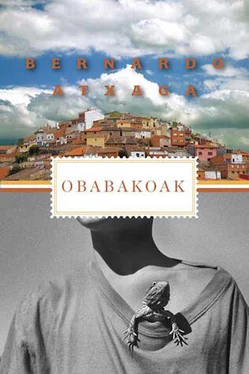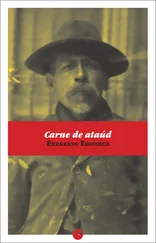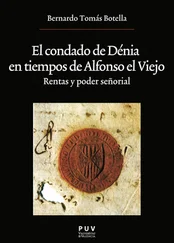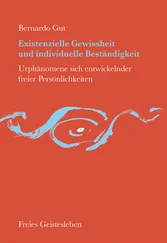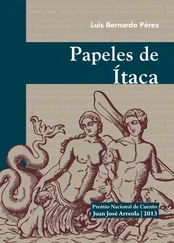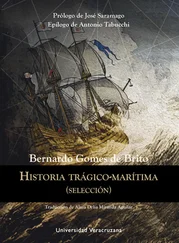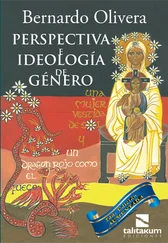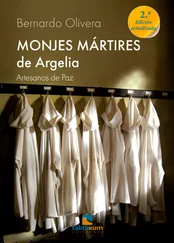Bernardo Atxaga - Obabakoak
Здесь есть возможность читать онлайн «Bernardo Atxaga - Obabakoak» весь текст электронной книги совершенно бесплатно (целиком полную версию без сокращений). В некоторых случаях можно слушать аудио, скачать через торрент в формате fb2 и присутствует краткое содержание. Год выпуска: 2010, Издательство: Graywolf Press, Жанр: Современная проза, на английском языке. Описание произведения, (предисловие) а так же отзывы посетителей доступны на портале библиотеки ЛибКат.
- Название:Obabakoak
- Автор:
- Издательство:Graywolf Press
- Жанр:
- Год:2010
- ISBN:нет данных
- Рейтинг книги:3 / 5. Голосов: 1
-
Избранное:Добавить в избранное
- Отзывы:
-
Ваша оценка:
- 60
- 1
- 2
- 3
- 4
- 5
Obabakoak: краткое содержание, описание и аннотация
Предлагаем к чтению аннотацию, описание, краткое содержание или предисловие (зависит от того, что написал сам автор книги «Obabakoak»). Если вы не нашли необходимую информацию о книге — напишите в комментариях, мы постараемся отыскать её.
Obabakoak
The Observer
Obabakoak — читать онлайн бесплатно полную книгу (весь текст) целиком
Ниже представлен текст книги, разбитый по страницам. Система сохранения места последней прочитанной страницы, позволяет с удобством читать онлайн бесплатно книгу «Obabakoak», без необходимости каждый раз заново искать на чём Вы остановились. Поставьте закладку, и сможете в любой момент перейти на страницу, на которой закончили чтение.
Интервал:
Закладка:
But before I say what happened I should confess that it is not usual for a writer to be both participant in and witness to any stories worthy of the telling, indeed that may be why we’re usually obliged to invent them instead. Nevertheless, just this once the rule will be broken. On this one occasion the author will extract his narrative material from his own reality. His work will be that of narrator rather than creator and although those two words may sound similar, they are not at all the same thing.
And now that the prologue is done, let’s get down to the story and continue, word by word, until we reach the last one.
The enlargement made by my colleague was, as I’ve said, some five times the size of the original photo, and because of that I could pick out details that before had been only blurs: the weeds growing in the cracks and joins of the stone steps, the buttons on the coat of one of the children being photographed.
While looking at this sort of detail I happened to notice the right arm of a classmate called Ismael, the bad boy of the class. He had slipped his arm underneath the flap of the satchel clasped to his chest, so that the fingers of his hand were poking out the other end. The hand was not empty. There was something sticking out of it. “A knife?” I thought, recalling that he was in the habit of carrying one around with him. But it couldn’t be, it definitely wasn’t anything sharp. It was then that I decided to resort to a magnifying glass to find out what it was. There was no doubt about it, what Ismael had in his hand was a lizard.
“He probably wanted to frighten the child in front of him,” I thought, remembering how scared the children in Obaba were of lizards.
“Never go to sleep on the grass,” our parents would tell us. “If you do, a lizard will come along and crawl inside your head.”
“But how will it get in?” we’d ask.
“Through your ear.”
“But what for?” we’d ask again.
“To gobble up your brains. There’s nothing a lizard likes more than human brains to eat.”
“And then what happens?” we’d insist.
“You’ll go crazy, just like Gregorio,” our parents would say straightfaced (Gregorio was the name of one of Obaba’s “characters”), adding: “That’s if you’re lucky, of course. Because the fact is the lizard didn’t actually eat much of his brains.”
Then, so as not to alarm us too much, they’d tell us that there were two ways of protecting oneself against lizards. The first was not to go to sleep on the grass. The second — assuming that the lizard had already managed to crawl inside your head — was to run as fast as you could around seven villages and ask the parish priest in each of them to ring the church bells, because then, unable to bear all that bell ringing, the terrified lizard would leave your head and run away.
Such were the ideas haunting me as I studied the photo and it occurred to me that the scene I’d just discovered could be interpreted as an attempted prank. That little devil Ismael probably held the lizard to the ear of the classmate immediately in front of him — Albino María by name — so that, out of disgust and fear, the latter would move and ruin the whole group pose. For some reason Albino María had withstood this act of aggression and there had been no need to retake the photo.
But something wouldn’t let me accept that interpretation so easily. That something was the memory of what had subsequently happened to Albino María, who in only a short time had gone from being one of the school’s brightest students to being one of its most stupid, growing progressively worse, becoming more and more confused until finally he was incapable of even reading or writing; a sad process that only came to a halt some years later, by which time Albino María had joined the ranks of the village idiots.
I pondered life’s ironies as I looked at the photo and it seemed to me that the lizard held so close to Albino María’s ear was, in some obscure way, an augury of all that happened to him later on. Symbolically speaking, lsmael’s gesture united past with future.
But was that union in fact purely symbolic?
At certain times — at dusk, for example, walking down the street along with a lot of other people — we are assailed by the most unexpected questions… and every time I went out for a stroll that was the question that kept returning again and again. What if that relationship were more physical than it at first sight appeared? What if the lizard really had crept inside Albino María’s ear? No, it simply wasn’t possible.
However, contrary to my expectations, the hypothesis grew in strength. One day I was looking at the photo again and I discovered that what Ismael had in his hand wasn’t a full-grown lizard, but a baby lizard, something that really was small enough to slip into someone’s ear. Then I consulted encyclopedias and nature guides and learned that the variety Lacerta viridis could in fact prove dangerous to man although — at least in those particular books — the nature of the danger was never specified.
Then it suddenly occurred to me to wonder about the eardrum. If the lizard had managed to get into the ear, the boy must have had a pierced eardrum. There was no other explanation.
My natural impatience meant that I had to find out the truth or falsity of my reasoning as soon as possible. I picked up the phone and called my uncle, an emigrant who had made his fortune in South America and then returned to live in Obaba.
“You know I don’t go out much anymore. You’ll have to ask someone else, I’m afraid,” he replied, without showing the least curiosity about the subject. In fact the only thing he was interested in were the literary gatherings held at his house on the first Sunday of every month. “Now you haven’t forgotten our arrangement, have you? We’ve got a meeting next Sunday,” he said.
“Don’t worry, I’ll be there, and with no fewer than four stories.”
“The uncle from Montevideo will be pleased.”
That’s what he liked to call himself: “the uncle from Montevideo.” He’d lived for a long time in that city and still had some business interests there, a couple of bookshops and a bakery.
“Are you sure? You never usually like anything I write! According to you all my stories are plagiarized!”
“Well, it’s true, isn’t it? All you writers today ever do is plagiarize. But hope springs eternal…”
“All right. You can tell me all about it on Sunday.”
“And see if you can bring another writer with you. The more the merrier.”
“I’ll try, Uncle, but I can’t promise anything. People are afraid of you. Is there anything in the world he does like? they ask themselves. Apart from nineteenth-century novels, that is.”
At the other end of the phone, my uncle chortled.
“So who could I ask about Albino María?” I said.
“Why don’t you phone the bar? All you have to do is say you’re conducting a survey about the physically handicapped. The word survey works wonders these days.”
I followed my uncle’s advice and got the result he’d predicted. The woman who owned the bar seemed very interested.
“Yes, you’re right, I think he is deaf. Hang on just a minute, I’ll go and ask some of the others at the bar,” she said.
While I waited, I came to the conclusion that the general tendency of stories is to grow ever more complicated.
Then I heard her say: “Yes, that’s right, he’s completely deaf in his right ear.”
It seemed to me that the moment had come to consult a doctor, because, as the photograph clearly demonstrated, the lizard — always supposing that it had managed to creep inside his ear — could only have done so from that side.
I need few words to summarize what happened next. At first the doctor I consulted — a friend of mine who was also very keen on literature — said that what I told him was an impossibility. But, being of an experimental turn of mind, he accepted the idea as a working hypothesis.
Читать дальшеИнтервал:
Закладка:
Похожие книги на «Obabakoak»
Представляем Вашему вниманию похожие книги на «Obabakoak» списком для выбора. Мы отобрали схожую по названию и смыслу литературу в надежде предоставить читателям больше вариантов отыскать новые, интересные, ещё непрочитанные произведения.
Обсуждение, отзывы о книге «Obabakoak» и просто собственные мнения читателей. Оставьте ваши комментарии, напишите, что Вы думаете о произведении, его смысле или главных героях. Укажите что конкретно понравилось, а что нет, и почему Вы так считаете.
